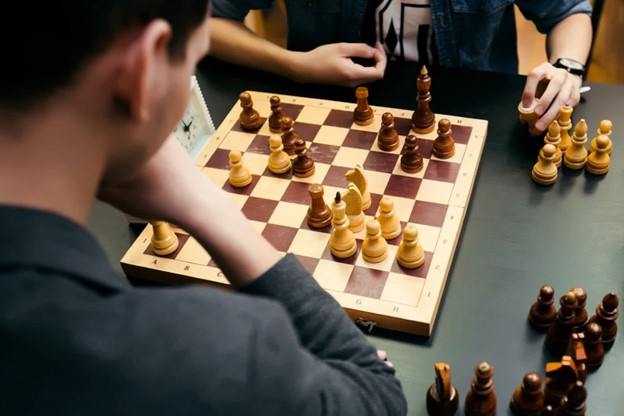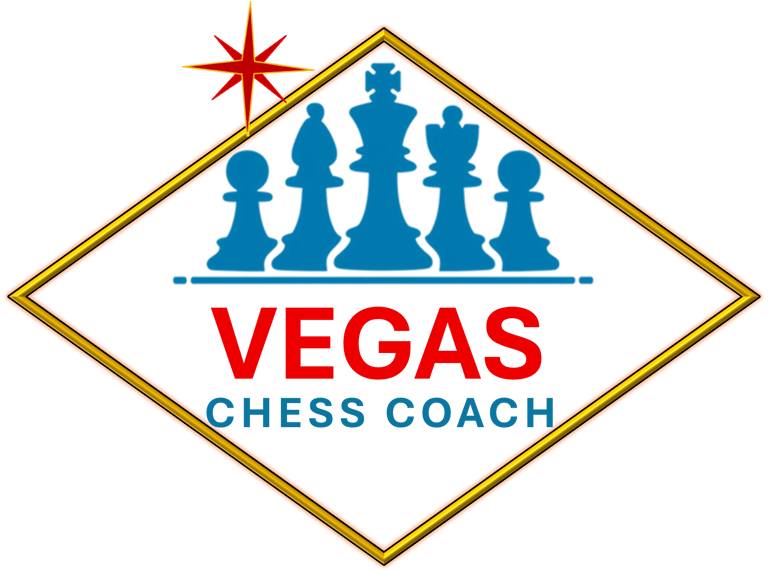How to Find a Good Chess Coach
Unlock Your Chess Potential with the Right Mentor
LEARNING CHESSCHESS COACHINGFINDING CHESS COACHES
Oliver Hemmers
7/14/20254 min read


Finding a good chess coach can be a transformative step in your journey to mastering one of the world’s oldest and most fascinating games. Whether you’re a beginner eager to learn the basics, a club player striving to break through rating plateaus, or an advanced competitor polishing your skills for tournaments, the guidance of the right coach can accelerate your progress, deepen your understanding, and keep your passion for chess alive. But with so many options—ranging from local mentors to online grandmasters—how do you choose the perfect fit? In this comprehensive guide, we’ll explore the qualities that define a good chess coach, practical steps for your search, and the questions you should ask to make an informed decision.
Why Get a Chess Coach?
Before diving into the search, it’s worth considering what a coach brings to your chess development:
Personalized Feedback: Unlike books or videos, a coach tailors advice to your needs, helping you identify strengths, fix weaknesses, and avoid common traps.
Structured Learning: Coaches provide lesson plans, training regimens, and homework, ensuring you progress systematically instead of wandering aimlessly through theory.
Motivation and Accountability: Regular lessons keep you on track and inspired, helping you push past periods of stagnation or frustration.
Competitive Edge: Advanced players benefit from deep analysis, tournament preparation, and psychological insights that only experienced mentors can provide.
Qualities of a Good Chess Coach
Not all strong and higher rated chess players make great coaches. Look for other attributes as well, when considering potential mentors:
Teaching Experience: A history of working with students at your level is often more important than a lofty title. Great teachers know how to simplify complex ideas and adapt to individual learning styles.
Communication Skills: Chess can be technical, but a good coach explains ideas clearly, patiently, and encourages dialogue so you feel comfortable asking questions.
Passion for Teaching: The best coaches are genuinely invested in your growth, showing enthusiasm for your progress and fostering a positive learning environment.
Proven Track Record: Look for testimonials, references, or evidence that the coach has helped others improve—especially players with similar goals to yours.
Flexibility: Every player is unique. A good coach will adjust their approach based on your strengths, weaknesses, and preferred learning methods.
Analytical Ability: Strong coaches are skilled at game analysis, helping you understand not just what went wrong, but why—and how to fix it in future games.
Professionalism: Reliability, punctuality, and clear expectations for lessons and homework create a productive coaching relationship.
Where to Search for a Chess Coach
Local Chess Clubs: Many cities have chess clubs with experienced players who coach privately or run group classes.
Schools and Community Programs: Some schools offer chess as an extracurricular activity, with teachers or hired coaches guiding students.
National Federations: Websites for organizations like the US Chess Federation often have lists of certified coaches or recommended instructors.
Online Platforms: Websites such as Chess.com, Lichess.org, Chessable.com, and others have directories of coaches, often with ratings, reviews, and sample lessons.
Social Media and Forums: Chess communities on Reddit, Facebook, or Discord can provide recommendations and personal experiences.
Word of Mouth: Ask friends, tournament organizers, or fellow club members for referrals—they might know coaches with a strong local or online reputation.
Evaluating Potential Coaches
Once you have a list of candidates, take these steps to find the best fit:
Check Credentials: Titles like National Master (NM), FIDE Master (FM), International Master (IM), and Grandmaster (GM) are impressive, but also look for teaching certifications or evidence of student success.
Sample Lesson: Many coaches offer a trial session. Use this opportunity to gauge their teaching style, clarity, patience, and whether you feel a rapport.
Student Reviews: Read feedback or ask for references from current and former students, ideally those who had similar goals to yours.
Lesson Structure: Ask how the coach plans lessons. Do they analyze your games, teach theory, offer puzzles, or focus on openings, middlegames, and endgames?
Compatibility: Chemistry matters. You should feel comfortable and motivated, not intimidated or bored.
Rates and Policies: Coaching rates vary widely; determine what fits your budget and clarify policies about cancellations, rescheduling, and communication between lessons.
Red Flags to Watch Out For
Lack of Teaching Experience: Some strong players struggle to convey ideas to less experienced students.
Poor Communication: If the coach is unclear, dismissive, or impatient, learning can become frustrating.
One-Size-Fits-All Approach: Beware of rigid lesson plans that don’t adapt to your personal needs.
Overpromising: Be wary of guarantees like “gain 200 rating points in a month”—improvement takes time and effort.
Unprofessional Behavior: Missed appointments, unclear pricing, or disrespectful communication are warning signs.
The First Lesson: What to Expect
Your first session is crucial for setting the tone of your coaching relationship. Here’s what you might experience:
Assessment: The coach will likely review your recent games, ask about your chess background, and discuss your goals.
Goal Setting: Together, you’ll determine short- and long-term objectives, whether that’s learning openings, mastering tactics, or preparing for competition.
Customized Plan: Expect your coach to outline a training regimen tailored to your strengths, weaknesses, and schedule.
Homework: Good coaches assign exercises, reading, or games to reinforce lesson content and build independent thinking.
Maximizing the Value of Chess Coaching
Remember, progress depends not only on your coach but also on your commitment to learning. To get the most out of your investment:
Be Honest: Share your struggles and aspirations openly so your coach can address the areas you care about most.
Self-Study: Between lessons, review past games, solve tactics, and study openings and endgames on your own time.
Ask Questions: Don’t be shy—clarify concepts, request practical examples, and seek advice on tournament preparation or mental strategies.
Track Progress: Keep a chess journal to log games, lessons, and insights. Reflection helps solidify learning and makes it easier to see improvement over time.
Provide Feedback: Let your coach know what’s working and what could be improved—great teachers appreciate input and aim to adapt.
Conclusion
Finding a good chess coach is a personal journey—what works for one player may not work for another. By clarifying your goals, seeking out qualified and passionate teachers, and building a collaborative relationship, you’ll set yourself up for meaningful improvement and sustained enjoyment of the game. Remember, even the world champions had mentors along the way. Take your time, trust the process, and enjoy the rich journey that chess coaching can unlock.


